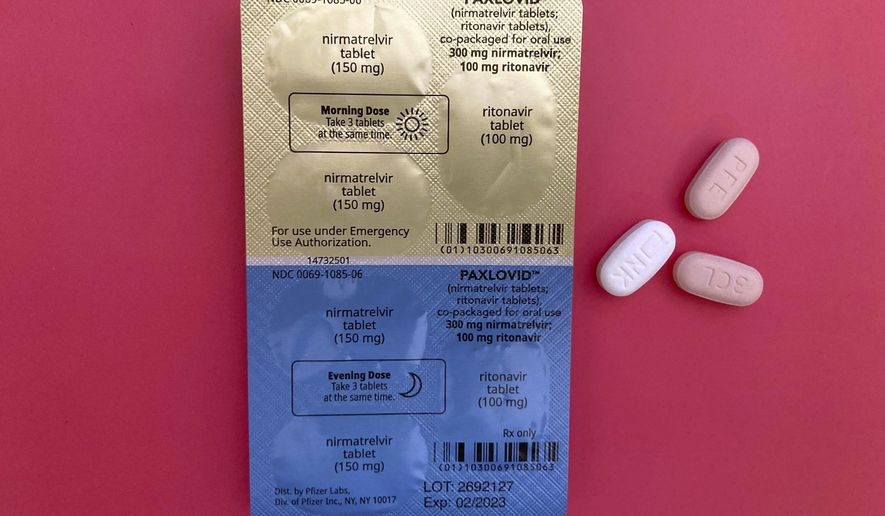Pfizer received full approval on Thursday for its COVID-19 pill Paxlovid that’s been the go-to treatment against the coronavirus.
More than 11 million prescriptions for Paxlovid have been dispensed since the Food and Drug Administration allowed emergency use in late 2021. The emergency status was based on early studies and was intended to be temporary pending follow-up research.
The FDA granted full approval for adults with COVID-19 who face high risks of severe disease, which can lead to hospitalization or death. That group typically includes older adults and those with common medical conditions like diabetes, asthma and obesity.
The decision allows Pfizer’s drug to remain on the market indefinitely and to be marketed similarly to other drugs.
The pill is still available for children ages 12 to 17 under a separate emergency authorization.
The U.S. government has stockpiled millions of doses of Paxlovid and patients will continue to receive it at no charge, the FDA said in a statement. More than 14,000 new COVID-19 cases were reported each week last month, although most U.S. cases are no longer reported to health authorities.
Paxlovid is the fourth drug for COVID-19 to receive full FDA approval and the first one that is a pill. The previously approved therapies are IV or injectable drugs, typically given at clinics or hospitals.
Pfizer originally studied Paxlovid in the highest-risk COVID-19 patients: unvaccinated adults with other health problems and no evidence of prior coronavirus infection. In that group, the FDA said the drug lowered the risk of hospitalization or death by 86% when given shortly after symptoms emerged.
But that doesn’t reflect the U.S. population today, where more than 95% of people have protection from at least one vaccine dose, a prior infection or both.
In more recent studies of people who have had COVID-19, Paxlovid still significantly decreased the chance of hospitalization or death by more than 85%.
As Paxlovid became widely used in 2021, doctors and patients reported cases of COVID-19 symptoms returning several days after treatment with the drug. But the FDA said Thursday “there is not a clear association,” between Pfizer’s drug and rebound cases.
That conclusion was backed by an independent panel of FDA advisers, who voted to recommend the drug’s full approval at a meeting earlier this year.




Please read our comment policy before commenting.